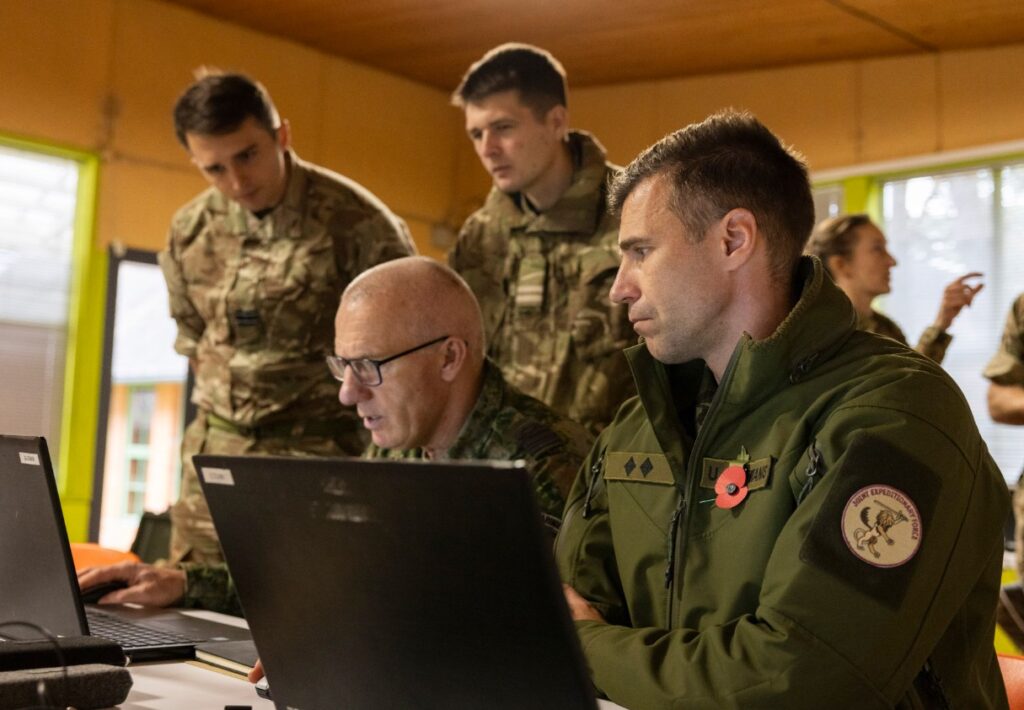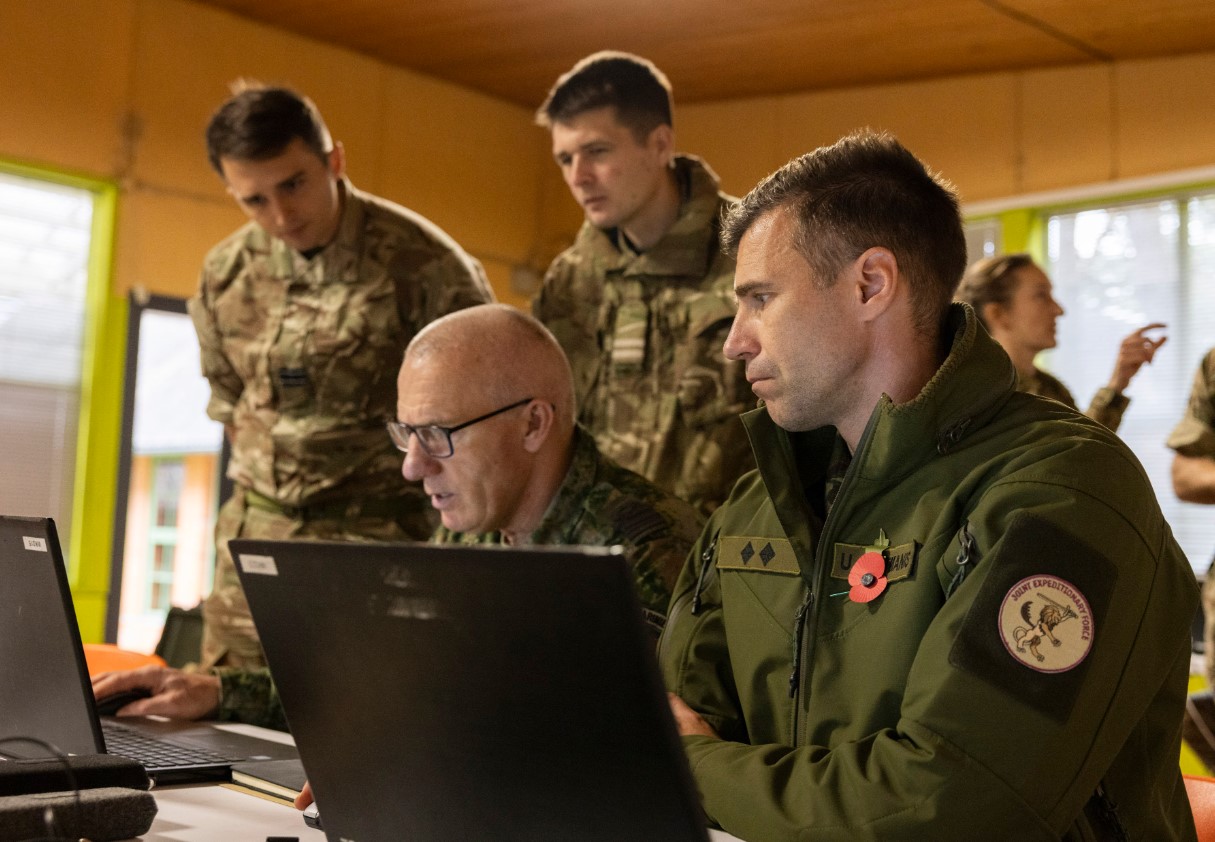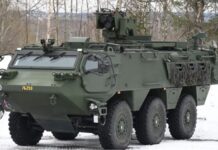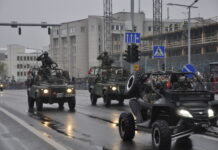The UK-led Joint Expeditionary Force (JEF), a partnership of 10 northern European nations, has successfully concluded Exercise ‘Joint Protector 24’ across multiple locations in Latvia, the UK Ministry of Defence (MoD) announced on 23 November 2024.
The exercise was designed to test how quickly the JEF could deploy together across Europe to defend Latvia from any rapidly emerging threat. More that 300 military personnel from across the 10 nations – Iceland, Denmark, Norway, the Netherlands, Latvia, Lithuania, Estonia, Sweden, Finland and the UK – practised deploying from their home countries, along with key equipment, to various locations across Latvia.
Ukrainian military officers also attended the exercise for the first time this year as the alliance looks to learn from Russia’s 2022 full-scale invasion of Ukraine and the Ukrainian military continues to work closely with its partners across Northern Europe.
This deployment – the third iteration of ‘Joint Protector’ – was the latest demonstration of the JEF’s capacity to operate from any chosen location and in response to a wide range of crises. For the 2024 exercise the UK’s Integrated Warfare Centre developed and presented a near-real scenario prompting action by the JEF together with national commands, governments and NATO. In parallel to the exercise environment the JEF HQ hosted several visits and engagements, including participation in Latvia’s Independence Day parade on 18 November 2024.
“Exercise ‘Joint Protector’ demonstrates our unwavering commitment to regional security, keeping us secure at home and strong abroad, as well as the strength and depth of our international partnerships,” UK Armed Forces Minister Luke Pollard was quoted as saying in a MoD press release. “The participation of our Ukrainian partners highlights the exercise’s importance, ensuring that we can learn from Ukraine’s hard-fought combat experience,” he added.
“The value added by the JEF is a significant contribution to both security and deterrence, giving JEF Participant Nation governments, and NATO, more options in times of crisis,” the UK MoD stated. “Our collective vision for the JEF’s long-term development is for it to be a key component of Northern European security: supporting our members, delivering region-specific and multi-domain defence activities, and contributing to the security of Europe as one of NATO’s Framework Nation Concept.”
The Joint Expeditionary Force (JEF) was established in September 2014 at the NATO Summit in Wales by the UK and six other countries (Denmark, Estonia, Latvia, Lithuania, the Netherlands and Norway) in the wake of Russia’s annexation of Crimea in Fenruary/March that year.
Announcing its formation, the UK government described it as “a pool of high-readiness, adaptable forces that is designed to enhance the UK’s ability to respond rapidly, anywhere in the world, with like-minded allies, or on behalf of international organisations such as the UN or NATO”. The JEF became operational in 2018.
While not part of NATO, the JEF would intend to complement it, especially since all JEF member nations are now also NATO members since the accession of Finland and Sweden into the alliance as a result of Russia’s invasion of Ukraine. The JEF website states that the force is “intrinsically connected and complementary to NATO and often works directly with NATO’s Joint Force Commands – including during Exercise ‘Joint Protector’.
“By contributing an additional layer of protection to Northern Europe, the JEF enhances the capability of all its members and partners, whilst supporting NATO as the region’s ultimate security guarantor,” the force states.








![Connect-4 The European Super RAP developed by NATO’s ACCS is shared with NATO’s Allied Air Command headquarters in Ramstein, western Germany. Two CAOCS, controlling NATO airspace above northern and southern Europe, generate these RAPs. [NATO]](https://euro-sd.com/wp-content/uploads/2025/06/NATO-Allied-Air-Command-NATO-Kopie-218x150.jpg)





